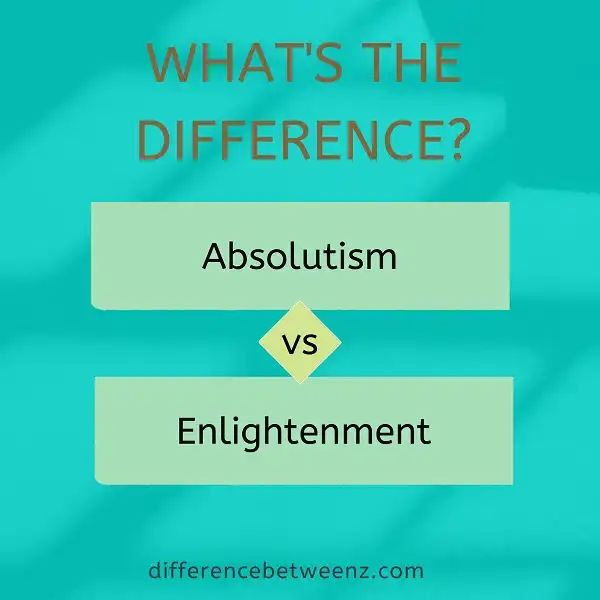The 18th century marked an important transition in European political philosophies, with the emergence of Absolutism and the Enlightenment. Both doctrines had a powerful and transforming influence on politics, society, economy and culture – yet they were logically at opposite ends of the philosophical spectrum. The challenge for many is to understand how two such contrasting ideologies could coexist in one era? To answer this question we must take a deeper look into each individual philosophy; what Absolutism was about; what Enlightenment aimed to achieve and why their similarities are just as important as their differences. This blog post will explore these ideas and ultimately provide readers with a better understanding of these two closely linked schools of thought.
What is Absolutism?
Absolutism was a governmental system that was popular during the 16th-18th centuries in Europe. It is an autocratic government form with a monarch having absolute power over people and land. Absolutism placed emphasis on complete obedience to the ruler, who held the right to act arbitrarily and without opposition. Absolutism depended on religious, military, and political forces to establish control and maintain order across large territories. This type of government is widely seen as archaic today, but its effects can still be felt in certain countries around the world.
What is Enlightenment?
Enlightenment refers to a period of history in the 17th and 18th centuries where philosophers sought to use reason to gain a new understanding of fundamental principles of knowledge.
- Enlightenment centered on gaining more insight into how the world works and using that knowledge to help individuals shape their lives in a positive, productive manner.
- Enlightenment also recognized the importance of religious tolerance, freedom from oppressive rule, and social reform; some Enlightenment thinkers pushed for education access for all people.
- Enlightenment was instrumental in forming an academic revolution that ultimately shifted society’s values towards open-mindedness, the natural sciences, and democracy.
Difference between Absolutism and Enlightenment
Absolutism and the Enlightenment were two distinct yet interrelated movements that had a major impact on the course of European history. Absolutism, emerging during the 16th century, was centered around the idea that an all-powerful monarch should serve as the absolute ruler of their country, holding full sovereignty over both the religious and political spheres.
- The Enlightenment, in contrast, preached a more optimistic and open outlook on life; it was characterized by an emphasis on moral reasoning, logical thinking, scientific inquiry, and philosophical contemplation.
- Where Absolutism saw government authority being supremely imposed from above by unquestioned royal decrees, Enlightenment thinking sought to create a greater sense of democratic rule – one where citizens had some say in shaping the path forward for their nation.
- Ultimately, Absolutism provided Europe with strong central governments which led to a period of relative peace within many countries but lacked political creativity while Enlightenment ideals spawned vibrant debates that unlocked potential new avenues of social progress.
Conclusion
There are many differences between absolutism and enlightenment. One major difference is that absolutism relies on the divine right of kings while enlightenment emphasizes human reason. Additionally, absolutists believed in a hierarchical social order while enlighteners believed in natural rights and equality. Finally, absolutists legitimized their power with claims of religious sanction while enlighteners used reason to support their political authority.


